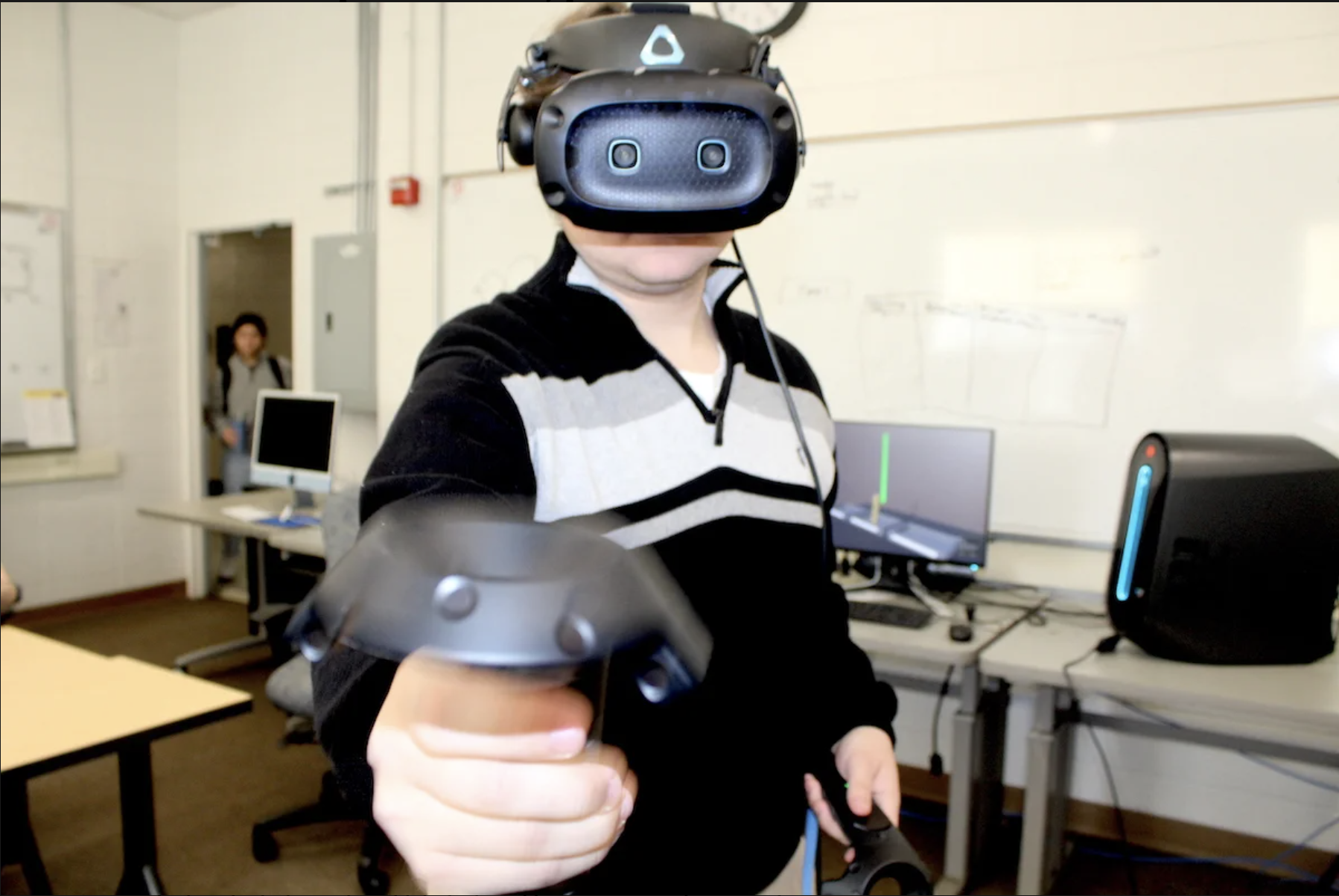As part of an initiative funded by a grant from the National Institutes of Health, the University of Rhode Island is helping to progress science education through a blend of traditional laboratory experiments and virtual reality technology.
With the help of pharmacy professor Dave Rowley, URI has been awarded the prestigious Science Education Partnership Award from the NIH’s National Center for Complementary and Integrated Health.
Funds included in the grant total over $1.3 million over a five year span, with the goals of the grant being to enhance STEM education by introducing high school students to the world of scientific research, helping to inspire an interest in these fields that could transition into a career, Rowley said.
The project, dubbed “Hands-on Education and Research for Biomedical and Analytical Learning” is a collaborative effort between URI students and faculty in pharmacy and computer science, as well as high school counterparts from Woonsocket High School, the Met High School and South Kingstown High School.
One way the grant funds will be utilized is by creating and developing a virtual reality simulation lab, which Rowley said will be a central component in HERBAL’s outreach to high school students.
“What we want to do is design laboratory experiments that can be done in a high school setting, and then add on the virtual reality type experiments,” Rowley said. “The goal is to use more sophisticated instrumentation that wouldn’t exist at the high school and allow students to go even further with their investigation of how that might be done.”
The ‘hands-on’ component is critical to the laboratory, as it will allow students to step into the role of a scientist to take part in experiments based on real-life situations, Rowley said.
“Students will wear VR headsets and proceed into the virtual reality laboratory to conduct experiments,” Rowley said. “They’ll move about the lab to accomplish goals toward investigating a medicinal plant and its molecules.”
Elizabeth Leibovitz, the coordinator of the Heber Youngken Medicinal Herb Garden, located in the College of Pharmacy, highlighted the importance of connecting scientific concepts with real-world applications.
“Chemistry can seem abstract to the students, and they have a hard time understanding why they should learn it, but really enjoy when you can show them the connection to medicine,” Leibovitz said. “It makes these topics more accessible because it gives students a reason to study…because they’re going to learn about how the body works, and how different compounds work.”
The program, still in its pilot phase, has a long-term vision that includes expanding its reach beyond the initial participating schools. Rowley also stated further developing the lab so it can be transportable, and eventually, downloadable as another priority.
“Once we get the HERBAL program established, we would like to expand our reach,” Rowley said. “We are trying to design transportable experiments that can be conducted in basic laboratories or science rooms at high schools. Also, we want to make the VR experience open access so people can download and use it wherever they are located.”
With plans to acquire new equipment and hardware, and to continue expanding the outreach of the HERBAL project, URI is set to continue improving upon this approach to science education, ensuring that more students across Rhode Island have access to immersive and educational learning experiences in areas of STEM study.

